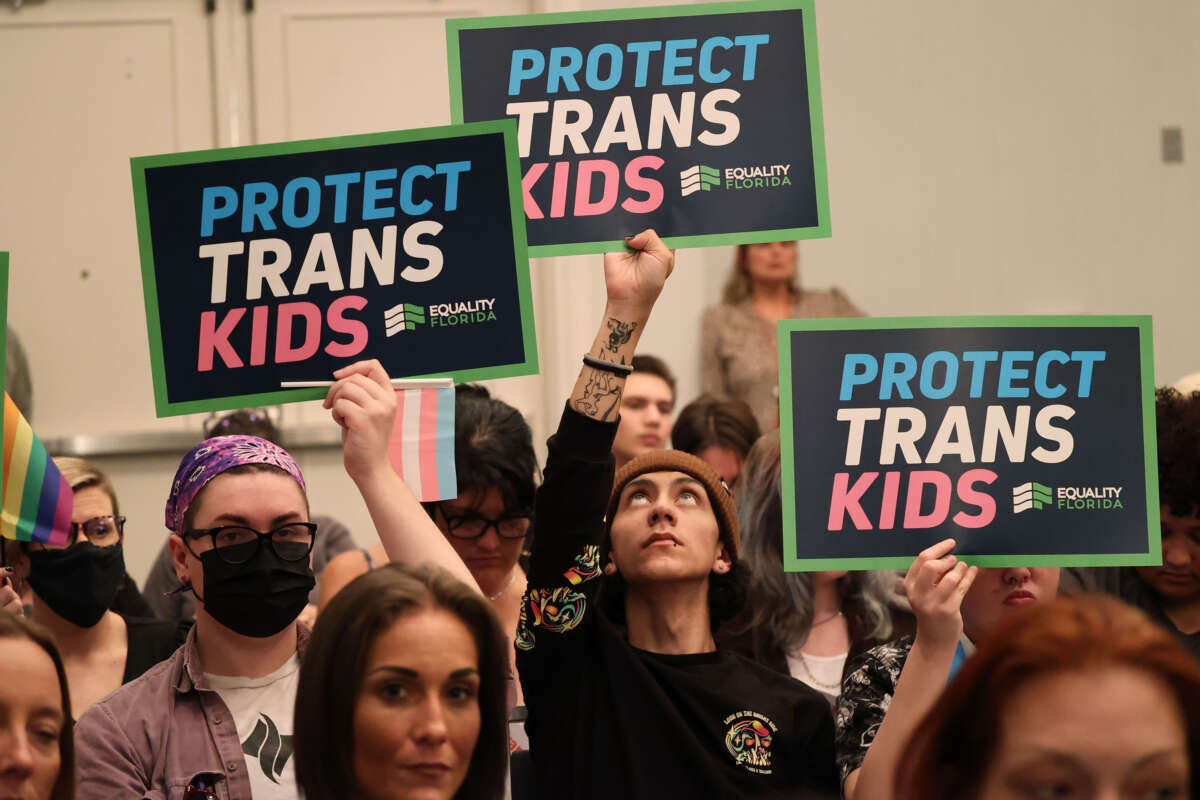Support justice-driven, accurate and transparent news — make a quick donation to Truthout today!
A federal judge has placed a preliminary injunction on Florida’s recently passed ban on gender-affirming care for transgender youth in the state, a ruling that places a partial block on the state law that legal experts say, in practice, may allow such treatments to resume for children in the state who need or may benefit from them.
The injunction by U.S. District Judge Robert Hinkle technically only applies to the families and practitioners who sued the state and are listed in the lawsuit. However, according to reporting from judicial journalist Chris Geidner, one of the lead lawyers for the plaintiffs, Jennifer Levi, explained to him that, though the ruling was narrow in its scope, it would effectively bar the state from enforcing the ban on others as well.
“The [injunction] is only for the plaintiff parties but it would likely preclude enforcement,” agreed Alejandra Caraballo, a clinical instructor for Harvard Law and transgender activist, tweeting about the case.
The state’s gender-affirming ban, signed into law by Gov. Ron DeSantis (R) in May, denies treatments for transgender youth, including the use of puberty blockers and hormone therapy — treatments that defenders of the law have wrongly asserted are unsafe but which remained legal for use by cisgender youth in the state for other health reasons.
In his decision, Hinkle pointed out that lawyers for the state failed to adequately “demonstrate any rational basis, much less an important or compelling one, for the transgender medical bans which prevent transgender adolescents from getting safe and effective medically necessary healthcare.”
The ban is likely unconstitutional, the judge wrote, adding that it was clear transphobia played a part in the passage of the law.
“Discouraging individuals from pursuing their gender identities, when different from their natal sex, was… a substantial motivating factor,” Hinkle wrote in his order, adding that “[n]othing could have motivated this remarkable intrusion into parental prerogatives other than opposition to transgender status itself.”
“The elephant in the room should be noted at the outset. Gender identity is real,” Hinkle wrote.
Hinkle also recognized that the “great weight of medical authority,” based on dozens of health organizations’ and physicians’ opinions across the country (and indeed the globe), indicated that the ban was unnecessary and harmful to trans youth.
In spite of the evidence saying otherwise, a spokesperson for DeSantis rejected that premise, describing the wide range of medical experts who have characterized gender-affirming care in positive terms as “rogue elements in the medical establishment.”
But one of the parents of a transgender child in the state who was part of the lawsuit, whose full name was kept anonymous to protect them, heralded the ruling and what it would mean for them.
“Today my entire family is breathing a huge sigh of relief knowing we can now access the treatment that we know will keep Susan healthy and allow her to continue being the happy, confident child she has been,” the parent said.
Media that fights fascism
Truthout is funded almost entirely by readers — that’s why we can speak truth to power and cut against the mainstream narrative. But independent journalists at Truthout face mounting political repression under Trump.
We rely on your support to survive McCarthyist censorship. Please make a tax-deductible one-time or monthly donation.
